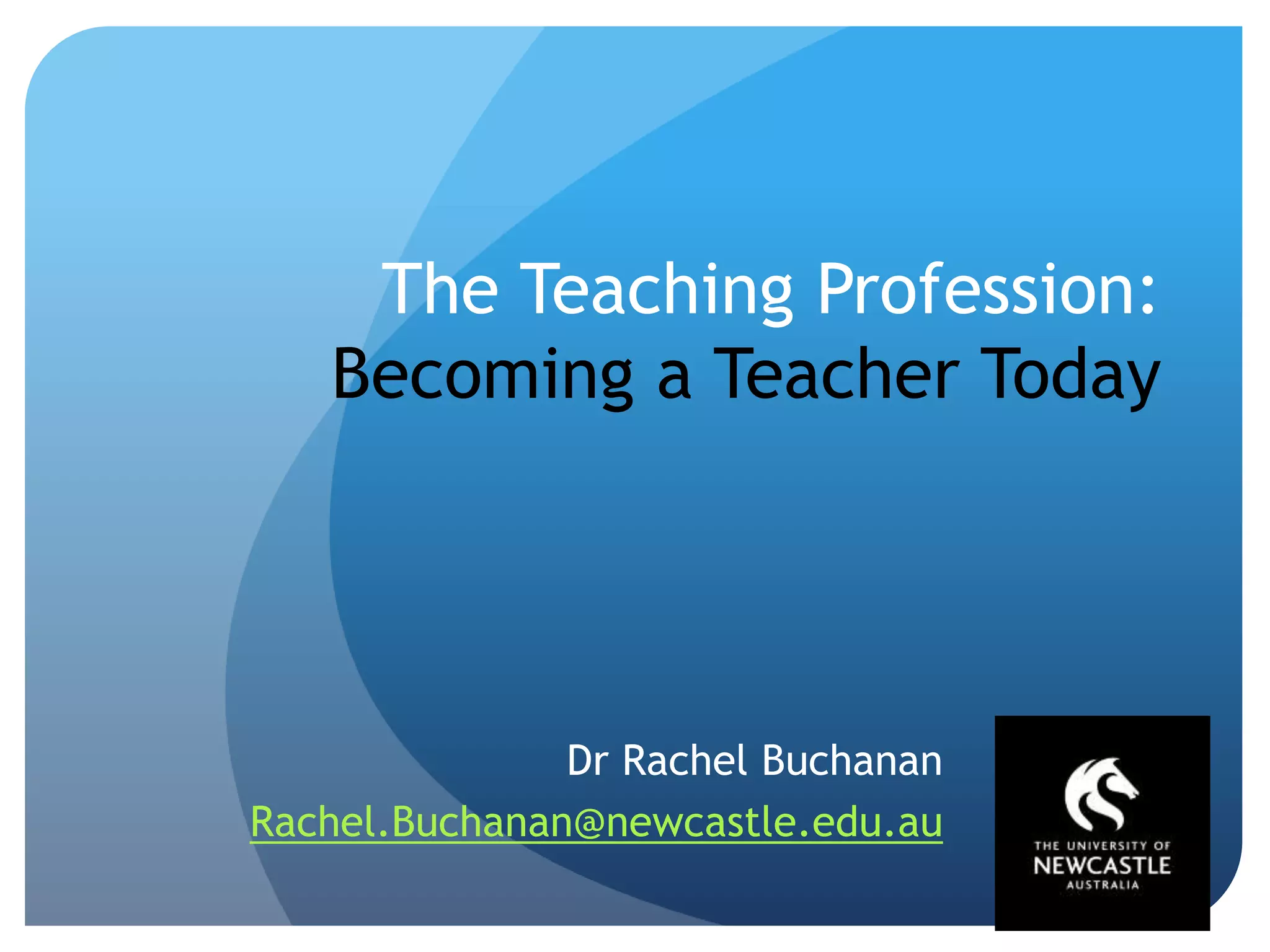This document discusses teaching as a profession and the key aspects of teacher professionalism. It defines teaching as a profession according to several criteria, such as requiring extensive training, serving an important social function, and being self-regulated. The document outlines three key aspects of teacher professionalism: teaching as a moral and ethical activity, mastery of teaching skills and content knowledge, and working within the legal and policy framework including national teaching standards. It provides examples of the laws and policies that govern teachers' work.









![Teaching is a moral endeavour
Teaching is fundamentally and critically a moral activity; to teach is
to influence the present and future by affecting the lives of
particularly vulnerable others – children.
Hannah Arendt:
“And education, too, is where
we...prepare [children] in
advance for the task of
renewing a common world”
10](https://image.slidesharecdn.com/teachingprofession-150214011701-conversion-gate01/75/Teaching-profession-10-2048.jpg)














